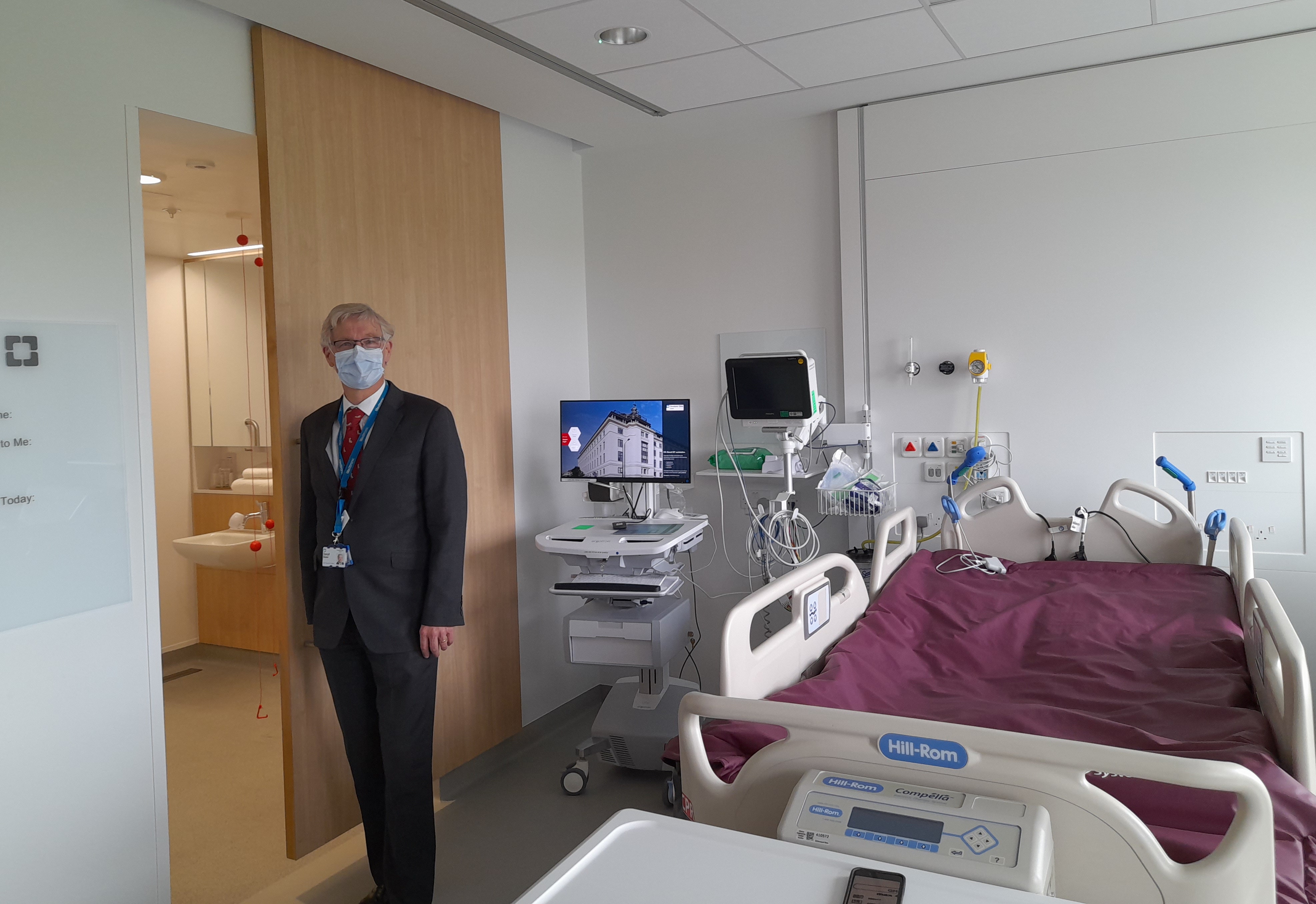Pic; Consultant Vascular Surgeon, Darryl Baker at the Cleveland Clinic London
In light of the ever burgeoning waiting lists, the boss at the Patients Association (PA), Rachel Power recently felt it was necessary to remind all NHS staff and patients that medical provision is a partnership, and that this partnership starts with the patient's own choice of consultant, clinic and hospital. Rachel explains the PA 'vision' as, "true patient partnership in the design and delivery of healthcare services. And at the heart of every individual consultation should be true shared decision making, which must include clear communication on how a patient can choose where they can access the treatment they need".
Patients need to understand their right of choice
She goes onto say, "The NHS can achieve this by ensuring healthcare staff and patients have clear communication about patients’ rights, including their right to choose a provider. It also needs to ensure patients understand those rights". Furthermore, "The NHS should also be providing patients with the information they need to choose a healthcare provider, including where waiting times are shorter, as well as the nature and quality of the care on offer".
 What are your rights as an NHS patient?
What are your rights as an NHS patient?
These patients rights are set out in the NHS Constitution, which states that, "The NHS is committed to working jointly with other local authority services, other public sector organisations and a wide range of private and voluntary sector organisations". With the patient "at the heart of everything", the NHS Constitution makes a number of key points, including:
- should support individuals to promote and manage their own health.
- must reflect, and should be coordinated around and tailored to, the needs and preferences of patients, their families and their carers.
- those in the armed forces, reservists, their families and veterans are not disadvantaged in accessing health services in the area they reside.
- patients, with their families and carers, where appropriate, will be involved in and consulted on all decisions about their care and treatment.
- the NHS will actively encourage feedback from the public, patients and staff, welcome it and use it to improve its services.
- Patients have the right to access certain services commissioned by NHS bodies within maximum waiting times, or for the NHS to take all reasonable steps to offer you a range of suitable alternative providers if this is not possible.
See - The NHS Constitution for England
A key responsibility of all NHS staff is to, "view the services you provide from the standpoint of a patient, and involve patients, their families and carers in the services you provide, working with them, their communities and other organisations, and making it clear who is responsible for their care".
Private sector booming
However, choice is also about patients choosing to go private and indeed, according to the Private Healthcare Information Network the number of self-paying procedures has increased to around 70,000 per quarter from an average of 50,000 per quarter before the pandemic.
According to the Independent Healthcare Providers Network, private hospitals are reporting that there's considerable growth, in some cases 40pc above pre-pandemic levels, and they are expecting that to continue in the context of the sheer scale of the NHS waiting lists.
As reported by Total Health previously, IHPN have pointed out with latest figures showing yet another record NHS waiting list, the independent sector must play a key role to play in providing capacity to the NHS.
The opening of the new Cleveland Clinic in London, situated just down the road from the original site of St Gearges hospital at Hyde Park Corner (now a hotel), has heralded a whole new level of international investment into healthcare in the UK. As reported by the Daily Telegraph it is estimated that the newly opened Cleveland Clinic (see feature picture) adding 184 beds to London's healthcare provision, could have cost the US hospital group around £1bn. However, the the capital’s private capacity increases by around one fifth – and, "NHS delays will generate plenty of demand for its services".
The Daily Telegraph goes onto report local commercial agent (Elphick) saying, “The guys who started building three or four years ago have hit a sweet spot,” Elphick says, “and those with the existing capacity are finding they are full up for the first time in years.
“But we think there is probably enough structural demand from waiting lists to last for the next seven years, so it is a very good time to be building extra private capacity.”
For anyone considering their choice for knee surgery, this link provides a good starting point.




